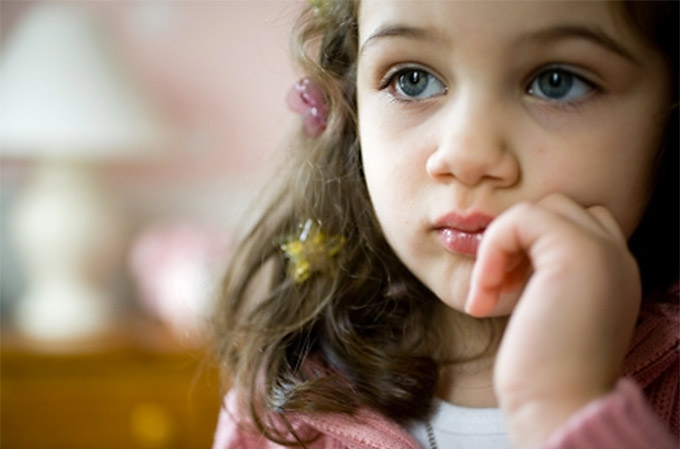Did you know that anxiety doesn’t just affect adults? Children experience anxiety as well. It is often thought that children do not experience anxiety or are oblivious to the worries of life, but this really is not the case. Although children may not worry about such things–money, college funds, or groceries–they can worry about other things such as upsetting authority figures, meeting new people, trying new things, the dark, being separated from parents and school work. These issues seem small to adults, but for children, these issues are very large as their sense of the world is not as developed as an adult’s. Children may also pick up on the anxiety of the adults around them. They will also feel anxious even if they are not sure why they have this feeling.

Just as the worries of children are different from the worries of adults, so are the symptoms of anxiety. Some symptoms may include: complaining of an upset stomach, having a lack of focus, crying, becoming easily upset, complaining of headaches or sickness, avoiding new situations or people, as well as sleeping more or less than usual. The child may also act “silly” or behave out-of-character in situations if she or he is anxious. Of course, it is important to rule out medical reasons for these symptoms before considering anxiety as the cause.
Depending on the age of the child, using words to express the anxiety may not be an option. Children often do not know the word “anxiety” and may use words like “scared”, “afraid”, or “worried”. Children may also say things like “I don’t like that” or “I feel bad”. It’s important to understand that though these words may be nondescript, your child is likely using them in an attempt to describe his or her feelings.
You can help your child by ensuring they know you are available to help them. Labeling their feelings as well as acknowledging that certain situations are hard for them will help the child feel validated and to understand that worrying or feeling anxious is OK. Telling the child not to worry or there is no need to worry may cause the child to think their feelings are inappropriate and that they are doing something wrong by having them. Also, telling the child not to worry does not give the child the opportunity to learn how to not worry. Talking it out, working through solutions, or helping the child understand how not to worry may reduce anxiety and anxious feelings. There are also various techniques the child can use in specific situations to reduce anxious feelings which include breathing techniques and “worry time”. If you have a child who is suffering from anxiety, you might consider contacting us for further advice.
